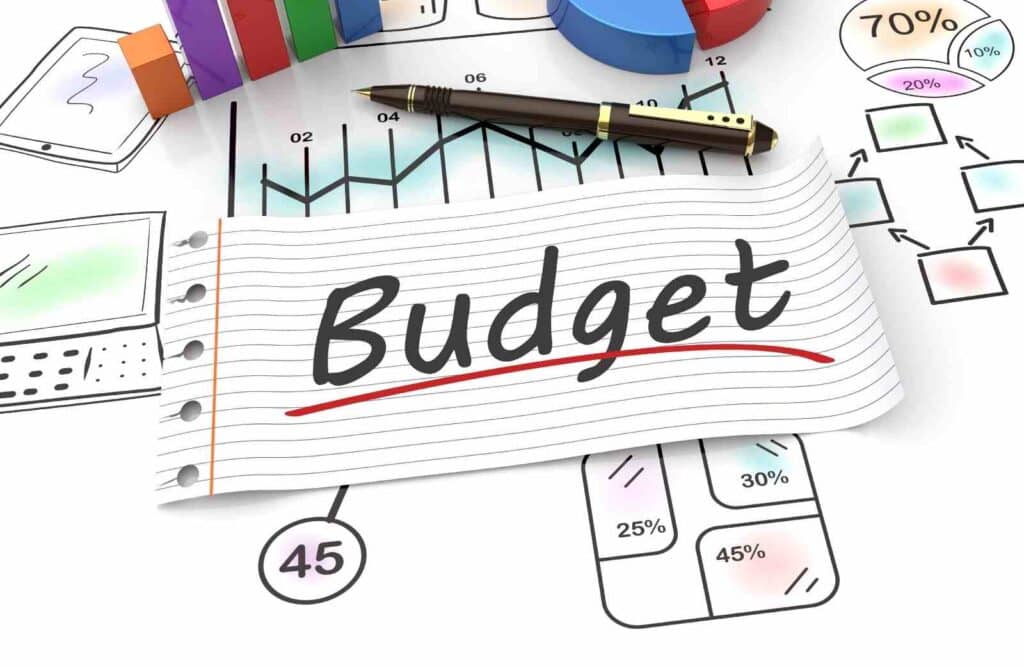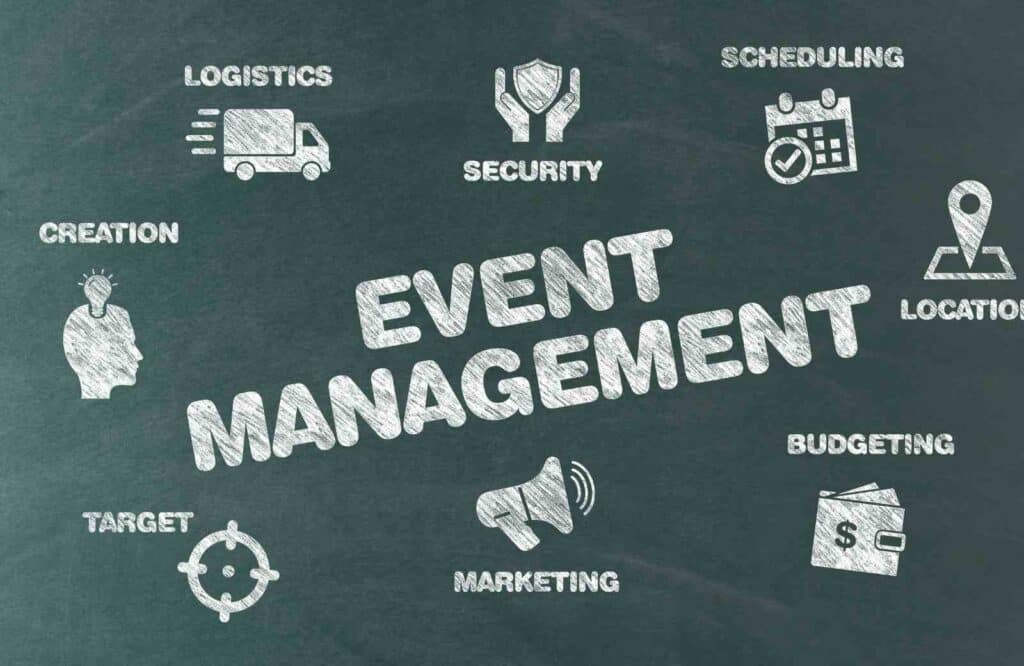Organizing a corporate event requires systematic planning across objectives, budget, venue, logistics, and vendor coordination. This guide covers the complete process from goal setting to post-event analysis, with Dubai-specific considerations for permits, cultural protocols, and optimal timing to ensure successful execution.
Step 1 – Define Event Objectives and KPIs
Step 1 – Define Objectives & KPIs
Start by setting clear, measurable goals tied to business priorities. Lead generation focuses on qualified prospects and conversions, employee engagement tracks attendance and satisfaction, brand visibility measures media and social reach, training evaluates skills gained and performance, while networking counts connections and partnerships.
Calculate ROI
Project ROI to justify budgets. Calculate cost per attendee, estimate value from leads, sales impact, retention, or brand equity, and benchmark against past events. Include a break-even analysis to define minimum results needed.
Step 2 – Budget & Timeline

Budget Breakdown
Allocate 30–40% to venue, 20–30% to catering, 10–15% to AV/tech, 5–10% to marketing, 5–10% to staffing, plus 10% contingency. Dubai venues vary: premium hotels (DIFC/Downtown), competitive desert sites, or seasonal beach options. Catering ranges AED 150–800 per person; AV from AED 5,000 to 30,000+.
Event Planning Timeline
- 6 months: book venue, send save-the-date
- 3–4 months: sign vendors, launch registration, start promotion, confirm menus/tech
- 1–2 months: finalize logistics, agenda, materials, and guest arrangements
- 1 week: walkthrough, rehearsals, confirm headcount, brief staff, prep contingencies
Step 3 – Select the Right Venue in Dubai
Venue Types and Considerations
Dubai offers diverse venue options matching different event requirements. Hotel conference centers in business districts provide comprehensive facilities including AV systems, catering, and accommodation.
Desert locations deliver unique experiences for team building and corporate retreats. Beach properties offer scenic outdoor settings ideal for networking events and product launches. Unique venues like museums, rooftops, and heritage sites create memorable experiences.
Evaluate venues based on capacity matching expected attendance, accessibility for attendees, parking availability, technical capabilities, and budget alignment. Request site visits before finalizing decisions.
Dubai-Specific Venue Requirements
Event permits and licenses are essential for Dubai corporate events. Hotels and established venues typically handle permit applications. Outdoor or public space events require permits from Dubai Municipality.
Alcohol licensing requires separate approval and is typically only available through licensed hotel venues. Processing takes 2-4 weeks, requiring advance planning.
Noise restrictions apply to outdoor events, particularly in residential areas. Climate control is non-negotiable for May through September events due to extreme heat. According to the Dubai Department of Economy and Tourism, the emirate hosts over 400 international business events annually with comprehensive support infrastructure.
Step 4 – Vendor Selection and Management

Essential Vendors
Successful events require coordinated vendor management. Catering companies provide food, beverage, and service staff. AV and technical production vendors supply sound systems, lighting, screens, and technical support.
Event staffing agencies provide registration personnel, ushers, and coordination staff. Transportation services handle airport transfers and venue shuttles. Photography and videography teams capture event content for marketing and documentation.
Entertainment providers include speakers, performers, and activity coordinators. Team building activity providers specialize in corporate engagement programs including desert safari experiences.
Vendor Vetting Process
Request proposals from minimum three vendors per category for price comparison and service evaluation. Review portfolios demonstrating previous work quality and relevant experience.
Check references from past clients focusing on reliability, professionalism, and problem-solving capabilities. Negotiate contracts covering deliverables, timelines, payment terms, and cancellation policies.
Clarify who provides equipment, backup systems, insurance coverage, and additional charges. Establish communication protocols and point-of-contact for event day coordination.
Step 5 – Create Compelling Event Program
Agenda Structure
Effective agendas balance content delivery with networking opportunities. Allocate 30-60 minutes for registration and arrival networking, allowing attendees to settle and connect.
Opening sessions lasting 15-30 minutes set event tone and objectives. Main content blocks should run 45-60 minutes maximum before attention wanes. Schedule 15-20 minute breaks every hour for refreshment and networking.
Include working lunch periods that combine meals with networking or informal discussions. Interactive afternoon sessions prevent post-lunch energy drops. Close with clear next steps and follow-up information.
Engagement Tactics
Interactive elements increase engagement and retention. Q&A sessions allow audience participation and address specific interests. Live polling through event apps provides real-time feedback and maintains attention.
Breakout groups facilitate deeper discussions and relationship building among attendees. Panel discussions offer multiple perspectives and dynamic content delivery.
Consider incorporating team building activities for employee events. Desert safari corporate experiences provide unique bonding opportunities outside traditional office settings. Learn what to wear for team building activities to ensure you feel confident, move freely, and match the event’s atmosphere.
Step 6 – Marketing & Invitations

Promotion Channels
- Email: save-the-date (2–3 months), invitation (6–8 weeks), reminders (2 weeks, 1 week, 1 day)
- LinkedIn: event pages for professional reach and connections
- Internal comms: intranet, Slack, team meetings for employee events
- Partners & sponsors: co-promotions to extend reach
Registration Management
- Use online platforms with custom forms, payment options, and auto-confirmations
- Track conversion rates, drop-offs, and demographics
- Send instant confirmation with agenda, venue, logistics, and calendar invite
Step 7 – Day-of Logistics
Pre-Event Setup
Walk through venue 2 hours before. Test AV and internet. Set up registration desk, signage, and catering schedule. Position media teams. Brief staff on roles and emergency plans.
Event Day Checklist
Hold staff briefing on duties and contacts. Open registration with check-in ready. Keep tech support on standby. Capture key moments via photo/video. Align catering with agenda. Prepare backups for WiFi, power, or weather. Assign a point person for issues.
Step 8 – Post-Event Follow-Up
Immediate Actions
Send thank-you emails within 24h with highlights, key takeaways, and resources. Share photos/videos via email and social channels. Provide slides/materials. Launch short feedback survey within 48h.
Measure Success
Compare attendance vs. registrations. Review surveys for satisfaction and themes. Track leads, deals, and pipeline impact. Monitor social engagement (mentions, shares, reach). Compare budget vs. spend. Document lessons learned for future events.
Dubai Corporate Event Planning Checklist
6 Months Before:
- Define objectives and KPIs
- Establish budget
- Research and book venue
- Send save-the-date
3-4 Months Before:
- Finalize vendor contracts
- Design and send invitations
- Launch registration platform
- Begin promotional campaigns
1-2 Months Before:
- Confirm catering and AV requirements
- Send invitation reminders
- Finalize agenda and materials
- Coordinate transportation
1 Week Before:
- Conduct venue walkthrough
- Technical rehearsal
- Brief event staff
- Confirm final headcount
Day Of:
- Setup and AV testing
- Staff briefing
- Registration activation
- Execute event plan
Post-Event:
- Thank-you emails (24 hours)
- Share photos and materials
- Deploy feedback survey
- Analyze success metrics





